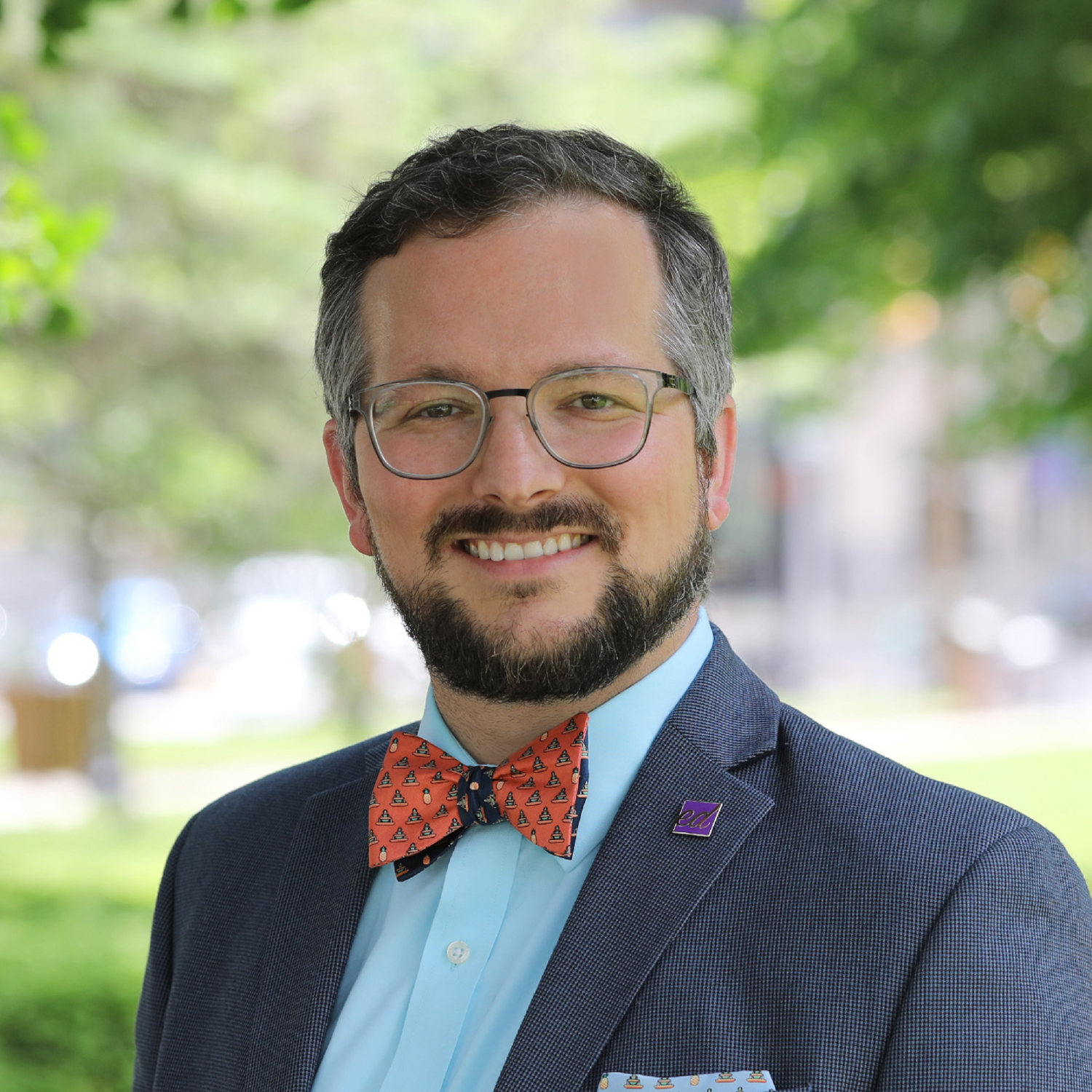EdChoice at the annual AEFP Conference
A few weeks ago (March 16–18), we attended the Association for Education Finance and Policy’s (AEFP) annual conference in Washington, D.C.
AEFP is definitely one of the top conferences in our field. It is a great place to present research and get feedback from some of the top minds in education research. Read on for our brief synopses of some of the sessions we attended and links to presented papers, when available. Please note that linked papers are for informational purposes only—do not cite without authors’ permission.
Charter Schools & Choice
Friedman Fellow Mike Podgursky and researchers from Harvard University, the University of Michigan and Duke University presented papers looking at charter schools’ participation in state teacher pension plans, parents’ perceptions of charter, traditional district and private schools, the effects of charter schools in Michigan and incentives and the supply of effective charter schools. See Kevin Hesla, Susan Aud Pendergrass, and Michael Podgursky, Charter School Participation in State Teacher Pension Plans (DRAFT COPY). As previously stated, please do not cite without authors’ permission, especially since this is a draft version.
Our take: Charter schools are roughly the same age as the school voucher movement and have continued to grow since the early 1990s, providing researchers with a wide array of data to analyze and compare with other educational choices and pathways. As more data become available, we hope to spur similar research related to education savings accounts (ESAs).
Competitive and Spillover Effects of Charter Schools
A researcher from Florida State University presented findings from an analysis on the effect of charter schools on district schools in California. Researchers from Florida State University and the University of Alabama at Birmingham presented two separate papers examining the effects of charter schools on district finances and the competitive effects of charter schools on district schools in North Carolina. Collaborators from the University of Kentucky and University of Notre Dame presented findings from their analysis of competitive effects of charter schools and private school vouchers on district schools in Indianapolis.
Our take: EdChoice recently published a case study of the effects of a successful arts-intensive urban public charter school in the formerly blighted downtown area of Santa Ana, California that found the school spurred local redevelopment and kept families located nearby. We’ll continue to watch this area of study closely to find out if there are more signs that high-quality choice schools can help communities in need.
Examining How and Why Parents Choose Schools
A researcher from Occidental College looked at a natural experiment in Mexico City to see how the expansion of the city’s mass transit system affected demand for certain types of schools chosen by students. See Andrew Dustan and Diana Ngo (2017), Commuting to Educational Opportunity? School Choice Effects of Mass Transit Expansion in Mexico City. Also in the session, two Harvard University doctoral students looked at the effect of the Great Recession on private school enrollment.
Our take: This latter research is highly relevant in the context of one of our recent research reports, The Private School Landscape: The Effects of School Choice on Student Capacity and Composition by Dick Carpenter, Rebecca Keith and EdChoice’s own Drew Catt.
Information and School Choice
Researchers from Mathematica Policy Research, New York University, Columbia University and Seton Hall University presented research on the importance of information dissemination to parents, students and school counselors within a school choice environment.
Our take: The session drove home how paramount it is for schools and state agencies to share the right information with families.
Poster Sessions
The poster sessions at AEFP are unlike any other conference we’ve attended. AEFP’s Board of Directors/nominees and senior scholars are formal poster session discussants, which allows for presenters to get some great feedback. It is always beneficial to walk through the poster session, because it allows us to see a wide range of research in a short amount of time. EdChoice’s Director of State Research and Policy Analysis Drew Catt presented a poster with findings from Why Parents Choose: A Survey of Private School and School Choice Parents in Indiana that was coauthored by Evan Rhinesmith.
Our take: A lot of smart people are doing some great work in our field, and it was a pleasure to see them showcasing it among peers.
Student Transportation as an Enabler of School Choice – Policy Talk
This panel of researchers from Urban Institute, New York University, Michigan State University, University of Maryland and University of Washington discussed the potential effect of student transportation policy on school choice and student outcomes in Denver, Detroit, New Orleans, New York City, and Washington, D.C.
Our take: This seems to be a hot topic, as we also talked to a Ph.D. candidate who is exploring the same issue in Nashville in one of her dissertation chapters, and we also saw a presentation exploring transportation and school choice in Mexico City (see Examining How and Why Parents Choose Schools).
Teacher Pensions: Costs and Incentives
EdChoice’s Director of Fiscal Policy and Analysis Marty Lueken had some of his research presented by one of his forwarding authors from the Thomas B. Fordham Institute, and researchers from the University of Missouri, RAND and the University of Arkansas also presented research on teacher pensions. See Martin F. Lueken (2017), (No) Money in the Bank: Which Retirement Systems Penalize New Teachers? (Thomas B. Fordham Institute) and Robert M. Costrell and Josh McGee (2016), Cross-Subsidization of Teacher Pension Normal Cost: The Case of CalSTRS (University of Arkansas, EDRE Working Paper 2016–17).
Our take: This issue continues to be the proverbial elephant in the corner, and we all need to be talking about it more—especially to those educators who are adversely affected by the current systems in place.
Unintended Consequences of School Finance Policy
Researchers from NWEA, the University of Kentucky, the University of Illinois at Chicago and Kent State University presented papers looking at ways in which testing, finance reform, property tax reform and vouchers can have effects other than what is potentially intended in policy design. See Benjamin Feigenberg, Steven Rivkin, and Rui Yan (2017), Illusory Gains from Chile’s Targeted School Voucher Experiment and C. Lockwood Reynolds and Shawn M. Rohlin (2017), Property Taxation and Businesses: A Regression Discontinuity Approach.
Our take: When new choice programs are enacted, the devil is always in the details, and the implementation phase is just as important as the legislative process.
What We Can Learn from New Data on Social-Emotional Skills and Climate
Researchers from Harvard University, Stanford University and Education Analytics presented papers looking at social emotional learning, and the presenters discussed how social emotional skills can be measured via surveys and panels and the relation between social emotional skills and academic outcomes. See Heather Hough, Demetra Kalogrides, and Susanna Loeb (2017), Using Surveys of Students’ Social-Emotional Learning and School Climate for Accountability and Continuous Improvement (Policy Analysis for California Education).
Our take: This panel provided insight into an area where we have not yet conducted any original research, and it was great to hear the techniques the presenters used to gather this information.
Keynote – Mobility Report Cards: The Role of Colleges in Intergenerational Mobility
Stanford University’s Raj Chetty captivated the audience with his discussion about which colleges contribute to upward income mobility. Using data on 30 million college students, he constructed mobility report cards for each college in the United States. This research is part of The Equality of Opportunity Project, a large-scale study seeking to identify factors that affect upward mobility. See Raj Chetty, John Friedman, Emmanuel Saez, Nicholas Turner, and Danny Yagan (2017), Mobility Report Cards: The Role of Colleges in Intergenerational Mobility (Equality of Opportunity Project).
Our take: The data generated from The Equality of Opportunity impressed the crowd, and University of Arkansas Professor of Education and Public Policy Gary Ritter had this to say:






